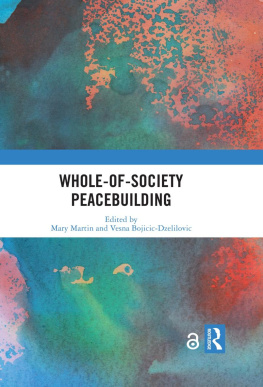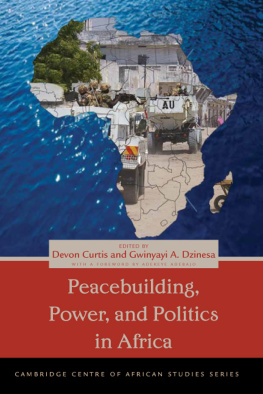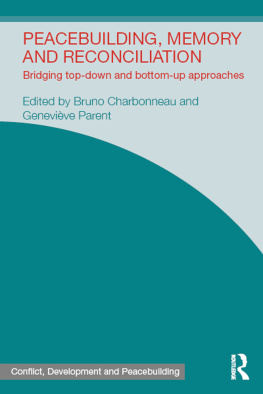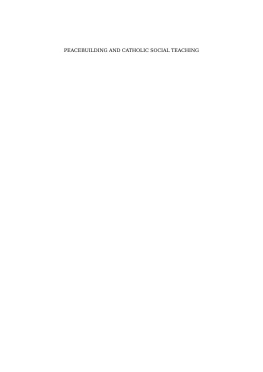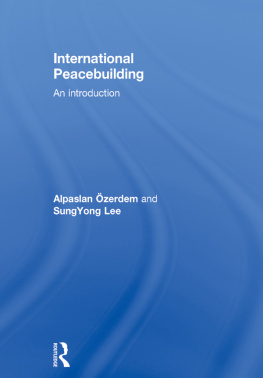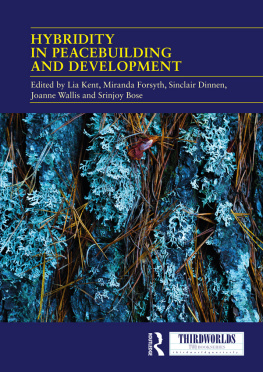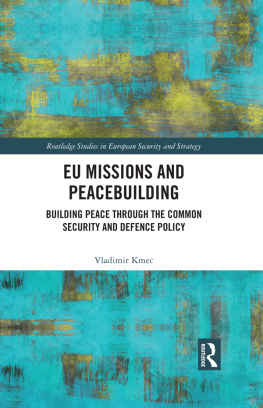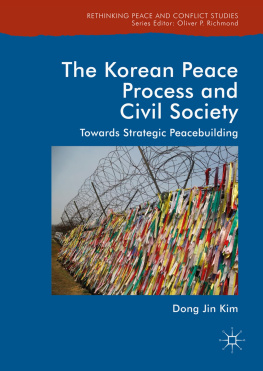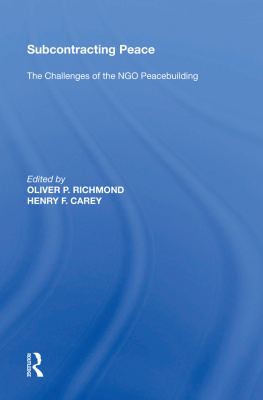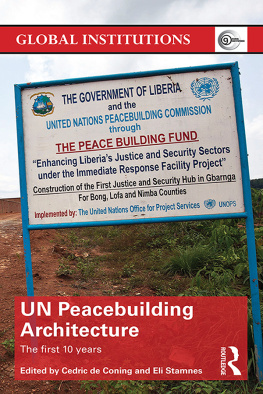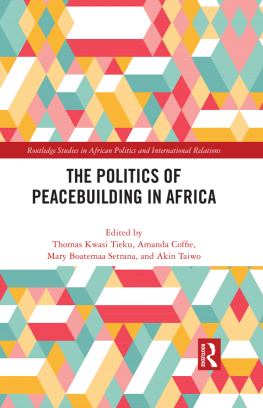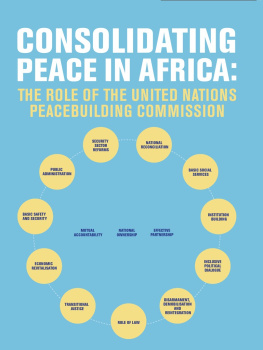Peacebuilding
The creation of the United Nations Peacebuilding Commission (PBC) in 2005 was the culmination of a long and contentious process. In this book Rob Jenkins provides a concise introduction that traces the origins and evolution of peacebuilding as a concept, the establishment and functioning of the PBC as an institution, and the complicated relationship between these two processes.
Jenkins examines how continued contestation over what exactly peacebuilding is, and how its objectives could most effectively be achieved, influenced the institutional design of the UNs new peacebuilding architecture. He then analyzes the roles that the organizations which comprise this new architecture have carved out for themselves during their first years in existence. The book argues that the UNs approach to rebuilding war-torn states will continue to be profoundly influenced by persistent political faultlines between member states as well as institutional rivalries within the UNs sprawling bureaucracy.
The theory and practice of peacebuilding have assumed increasing importance over the last decade, and this work is essential reading for all students of conflict resolution, peace studies, and international relations.
Rob Jenkins is Professor of Political Science at Hunter College and the Graduate Center at The City University of New York. Formerly Professor of Politics at the University of London, he has published widely on Indian politics, movements for democratic accountability, and the politics of international economic and security assistance.
Routledge Global Institutions Series
Edited by Thomas G. Weiss
The CUNY Graduate Center, New York, USA
and Rorden Wilkinson
University of Manchester, UK
About the series
The Global Institutions Series has two streams. Those with blue covers offer comprehensive, accessible, and informative guides to the history, structure, and activities of key international organizations, and introductions to topics of key importance in contemporary global governance. Recognized experts use a similar structure to address the general purpose and rationale for specific organizations along with historical developments, membership, structure, decision-making procedures, key functions, and an annotated bibliography and guide to electronic sources. Those with red covers consist of research monographs and edited collections that advance knowledge about one aspect of global governance; they reflect a wide variety of intellectual orientations, theoretical persuasions, and methodological approaches. Together the two streams provide a coherent and complementary portrait of the problems, prospects, and possibilities confronting global institutions today.
The most recent related titles in the series include:
United Nations High Commissioner for Refugees (UNHCR) (2nd edition, 2012)
by Gil Loescher, Alexander Betts, and James Milner
The Responsibility to Protect (2011)
edited by Rama Mani and Thomas G. Weiss
Humanitarianism Contested (2011)
by Michael Barnett and Thomas G. Weiss
Shaping the Humanitarian World (2009)
by Peter Walker and Daniel G. Maxwell
The International Committee of the Red Cross (2007)
by David P. Forsythe and Barbara Ann Rieffer-Flanagan
Peacebuilding
From concept to commission
Rob Jenkins
First published 2013
by Routledge
2 Park Square, Milton Park, Abingdon, Oxon OX14 4RN
Simultaneously published in the USA and Canada
by Routledge
711 Third Avenue, New York, NY 10017
Routledge is an imprint of the Taylor & Francis Group, an informa business
2013 Rob Jenkins
The right of Rob Jenkins to be identified as author of this work has been asserted by him in accordance with the Copyright, Designs and Patent Act 1988.
All rights reserved. No part of this book may be reprinted or reproduced or utilised in any form or by any electronic, mechanical, or other means, now known or hereafter invented, including photocopying and recording, or in any information storage or retrieval system, without permission in writing from the publishers.
Trademark notice: Product or corporate names may be trademarks or registered trademarks, and are used only for identification and explanation without intent to infringe.
British Library Cataloguing in Publication Data
A catalogue record for this book is available from the British Library
Library of Congress Cataloging in Publication Data
Jenkins, Rob, 1965
Peacebuilding : from concept to commission / Rob Jenkins.
p. cm. (Routledge global institutions series)
Includes bibliographical references and index.
1. United NationsPeacekeeping forces. 2. Peace-buildingHistory. I. Title.
JZ6374.J46 2012
341.5'84dc23
2012019656
ISBN: 978-0-415-77643-1 (hbk)
ISBN: 978-0-415-77644-8 (pbk)
ISBN: 978-0-203-08105-1 (ebk)
Foreword
The current volume is the seventy-second title in a dynamic series on global institutions. These books provide readers with definitive guides to the most visible aspects of what many of us know as global governance. Remarkable as it may seem, there exist relatively few books that offer in-depth treatments of prominent global bodies, processes, and associated issues, much less an entire series of concise and complementary volumes. Those that do exist are either out of date, inaccessible to the non-specialist reader, or seek to develop a specialized understanding of particular aspects of an institution or process rather than offer an overall account of its functioning and situate it within the increasingly dense global institutional network. Similarly, existing books have often been written in highly technical language or have been crafted in-house and are notoriously self-serving and narrow.
The advent of electronic media has undoubtedly helped research and teaching by making data and primary documents of international organizations more widely available, but it has complicated matters as well. The growing reliance on the Internet and other electronic methods of finding information about key international organizations and processes has served, ironically, to limit the educational and analytical materials to which most readers have ready accessnamely, books. Public relations documents, raw data, and loosely refereed websites do not make for intelligent analysis. Official publications compete with a vast amount of electronically available information, much of which is suspect because of its ideological or self-promoting slant. Paradoxically, a growing range of purportedly independent websites offering analyses of the activities of particular organizations has emerged, but one inadvertent consequence has been to frustrate access to basic, authoritative, readable, critical, and well-researched texts. The market for such resources has actually been reduced by the ready availability of often poor-quality electronic materials.
For those of us who teach, research, and operate in the area, such restricted access to information and analyses has been frustrating. We were delighted when Routledge saw the value of a series that bucks this trend and provides key reference points to the most significant global institutions and issues. They are betting that serious students and professionals will want serious analyses. We have assembled a first-rate team of authors to address that market. Our intention is to provide one-stop shopping for all readersstudents (both undergraduate and postgraduate), negotiators, diplomats, practitioners from nongovernmental and intergovernmental organizations, and interested parties alikeseeking insights into the most prominent institutional aspects of global governance.




